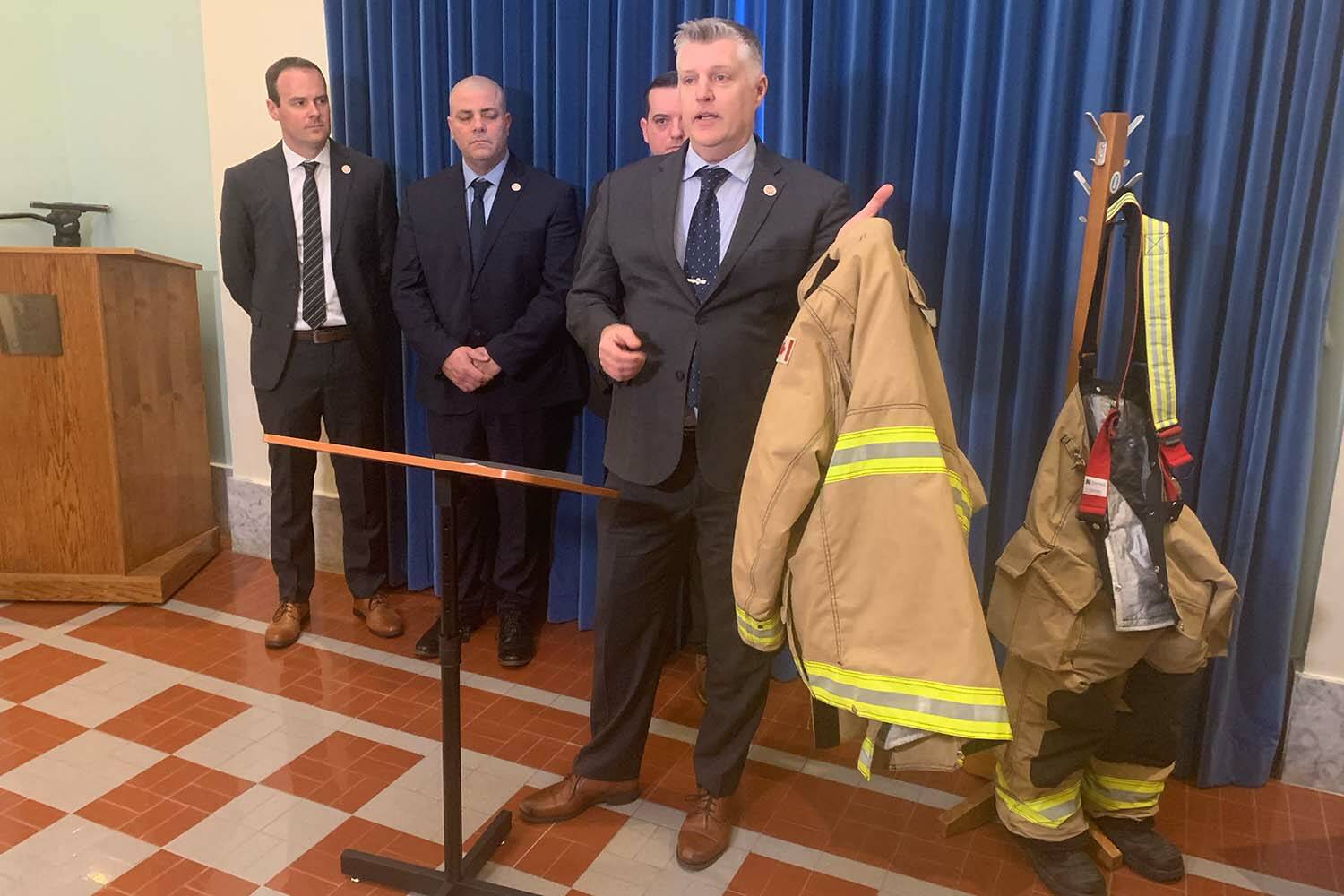B.C. firefighters want the province to phase out the cancer-causing so-called ‘forever chemicals’ found in personal protective gear and foam.
“I think B.C. has a great opportunity here to lead across the nation,” Todd Schierling, president of the BC Professional Fire Fighters’ Association said Thursday (March 14). He said the plan has the support of the national professional firefighters organization, and similar legislation has been adapted in more than 30 states in the United States.
Schierling was speaking to media with members of his 4,500-member organization’s executive and BC Green House Leader Adam Olsen, who had tabled a private member’s bill calling for the change that morning.
The bill would phase out polyfluoroalkyl substances found in personal protective gear and foam. Research from the United States has linked PFAS with various types of cancer with manufacturers facing legal actions.
Schierling said these cancer-causing substances can seep out of firefighters’ personal protective gears while they are sweating on the job.
“This is our best protection against fire, smoke, flames,” he said. “But we also call it…a cancer blanket. It is laced with (these forever chemicals).”
Firefighters can also absorb them through foam, he added.
Schierling said firefighters work in a carcinogenic environment all the time, adding that the International Agency for Cancer Research has deemed firefighting a Group 1 carcinogenic profession, meaning firefighting is carcinogenic. Past classifications had only deemed it possible that firefighters may get cancer.
The bill calls on the provincial government to develop province-wide gear regulations that would include phasing out PFAS.
Vancouver Fire Rescue Services has announced that it would be phasing out of PFAS-containing firefighting gear, but Olsen said more needs to be done to avoid a two-tier system where some departments have access to safer equipment.
He sees province-wide regulation coupled with financial support as especially important given the reliance of smaller, rural communities on volunteer departments.
“In my experience…smaller services have a much more difficult job in convincing local governments, regional districts, improvements services (to invest) because of just tight budgeting,” he said. “So by setting a provincial standard, we are ensuring that whether you are pressed into action in a rural community in British Columbia or in downtown Vancouver, every firefighter gets the same level of protection.”
Brian Catinus, BCPFFA’s secretary-treasurer, said he hopes the bill will help departments shift toward safer protective gear. Departments must change gears about every 10 years anyway, he said.
“Some departments, unfortunately exceed those 10 years.”
Phasing out cancer-causing ‘forever chemicals’ would also send a larger signal, Olsen said. It would tell would-be volunteers that government is taking their safety and long-term health seriously. I
Private member bills often face a difficult, often futile path toward passage, but Olsen thinks it can become law.
“This is a good bill,” he said. “I think when government takes a look at how this bill was drafted and the content in it, I think they will have a hard criticizing it just on its own.”
BC United has also recently called for improvements for mental health supports for firefighters and BCPFFA has had discussions with government around these issues, Schierling said.
Counting all types of firefighters, B.C. has about 12,000 firefighters.
READ ALSO: Cancer leading cause of death for firefighters, B.C. study finds
READ ALSO: Why cancer is deadlier than fire for firefighters in B.C.

